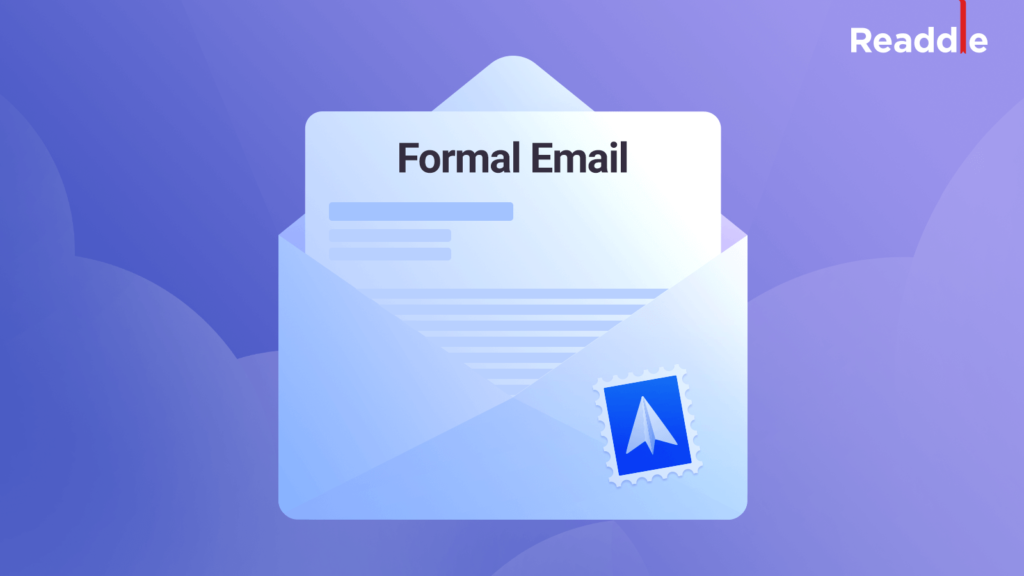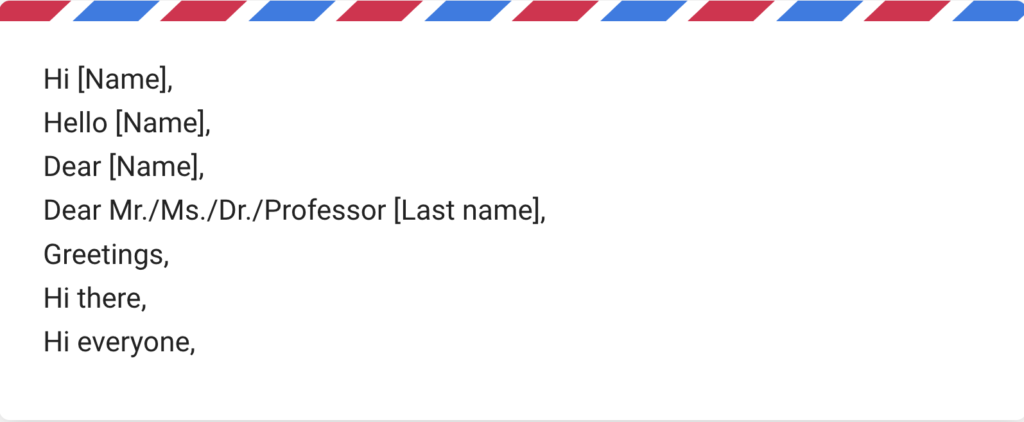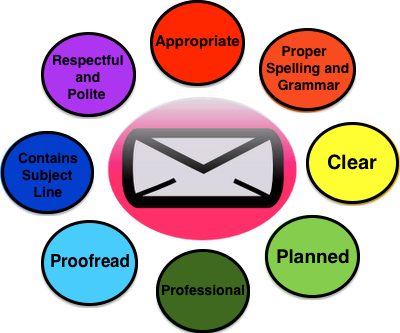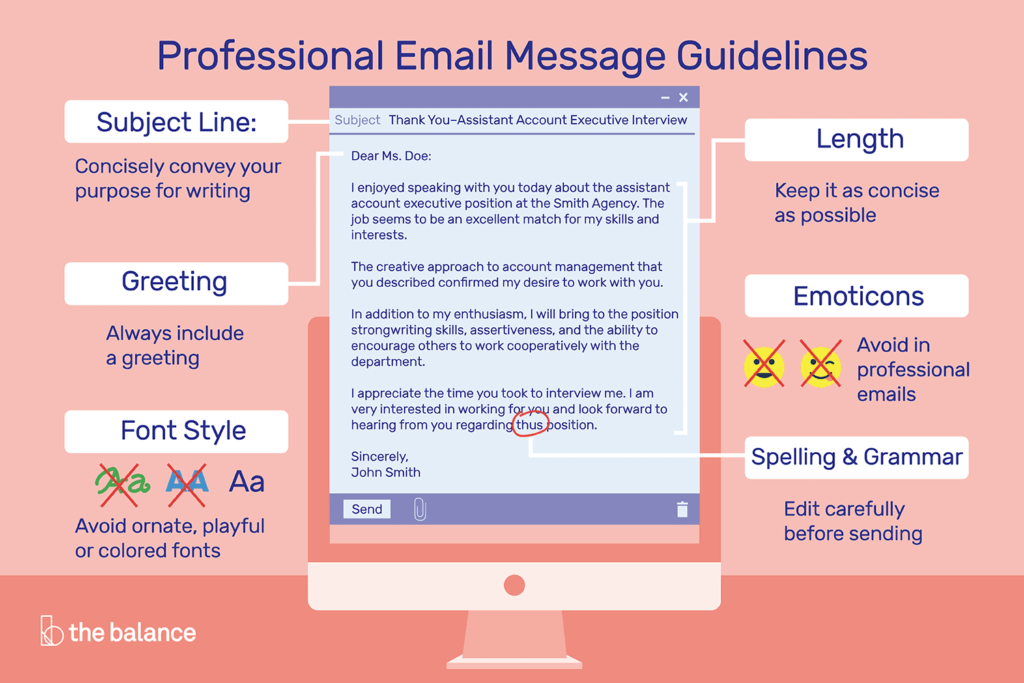Professional Email Writing Tips for Effective Communication

Emails, especially formal ones, are sent to initiate a discussion, interact with clients, or solve issues. Hence, you must frame them well before sharing them with your client.
You must pay close attention to setting the right tone for your message. It is one of the most important professional email writing tips.
At times, some phrases become redundant, or we keep using them without knowing if they are correct. So, to save you time and ensure you use the correct words and tone while writing emails, we have prepared a handy list of the top email writing tips and phrases you should avoid.
Professional Email Writing Tips

Always begin with a meaningful subject line
A meaningful subject line is crucial not just to connect with a client but also to make it more impactful and to ensure that your client opens the email.
Your email subject line should be as short as possible and to the point. Ensure that it perfectly captures your intention. Remember that the subject line can make or break whether your client sends the emails straight to trash or reads them.
Address your client appropriately

An important business email writing tip is that you shouldn’t use casual language like ‘hey’ or ‘what’s up.’ This would be fine if you’re sending an informal email to a friend or colleague. For a professional email, you can use a simple ‘hello,’ or ‘hi.’
Keep the email short and succinct
Keep in mind that clients are busy and are already overwhelmed with countless emails. They don’t have the time to read your email, especially if it’s unnecessarily long. Hence, ensure that your email reaches straight to the point and doesn’t beat around the bush. This way, you are certain that your client’s response will be appropriate, and they won’t miss anything.
Must read well
In addition to the length, ensure your email is easy to read. Add enough indentations or space between paragraphs, making it easier to read and skim. Don’t use unnecessary jargon; ensure that all the important points are at the beginning of the paragraph, making it easier to read.
Re-read the email
Often, when we write emails in between a work day, we tend to write them quickly. So, it’s likely that there may be spelling and grammar errors. These small blunders can cause your client to have a lower professional opinion of you. Hence, ensure you read the email once again before hitting send to avoid such errors.
Don’t use slang words
In any business email writing, it’s vital that you do not use any slang or emojis. Moreover, ensure you’re picking a simple type with minimal colors if any at all.
Make use of an appropriate signature
It is imperative that you are closing an email correctly. The two most appropriate closers for a professional email are ‘Thank you’ and ‘Best regards.’ Also, do not forget to add your name after attaching the closer. Ideally, we recommend setting up an automated email signature for your email account so that it gets automatically added to all your emails no matter what.

Email Phrases to Avoid With Clients
Emailing is one of the most common means to communicate in professional spheres. Much of your business depends on how you communicate with various stakeholders in your industry.
Therefore, having sound email etiquette is of utmost importance. Mentioned below are some email phrases to avoid while writing to clients.
“You should…”
Clients love suggestions and alternatives, not ultimatums. Your job is to guide the client and not instruct them. You can share hundreds of creative ideas with them, but it all depends on whether they sound acceptable to them.
For instance, when there are debates on whether to use blue or yellow as the background or when the client is insistent on accepting only a certain type of font, sadly, there is not much you can do.
As a client-servicing professional, you might have your client’s best interest at heart, but there is a fine line between suggesting something and being pushy. You surely do not want to blur the lines and offend your client.
To ensure your suggestions are more like friendly advice and that you don’t come across as someone imposing their ideas on the client, you can use “I recommend” instead.
“I shall try”
Remove this phrase from your list. In the age of cut-throat competition, you can’t afford to use “I shall try.”
When you address your client queries with sentences like “I shall try to share the revised article by tomorrow,” you are not adhering to the client mandate and sounding indecisive.
Replace this phrase with action-oriented language to make the client feel confident about your ability to get work done within the stipulated time.
If you find the task difficult, need some time to research a particular topic, or need help from a senior to get the job done, borrow some time from the client. The email responses you send to your client reflect your professionalism and need to be detailed and precise.
“To be honest with you”
This particular phrase breeds many questions in the client’s mind: are you not honest with everyone? Are you not always honest with me? Why are you suddenly being so honest with me?
This is a conversational phrase used to give opinions but should be avoided when writing a professional email. If your client has asked for your suggestion on an idea and you begin with “to be honest with you, I would like to suggest some changes,” it may sound like a blunt remark. This might leave them wondering if you have been honest with them at other times.
So, while writing a good email to a client suggesting changes in their approach towards a particular task, using this phrase is a big no.
The reason is simple. It is because they are relying on your expertise, and with this phrase, you leave them wondering if you have been hiding your honest opinions this whole time. This may make it difficult for them to trust your decisions.
“As I mentioned before”
There is no harm in mentioning it again. Let’s assume you are writing an email to a client, reminding them to share approval for a social media creative. Avoid using this phrase even if you are writing a reminder email for the third time and need approval urgently. Let your email reflect the urgency of the situation but in a polite way.
Your client can be the head of an organization that receives innumerable emails daily or a baker who is single-handedly trying to set up their business. There are cases wherein clients just skim through their emails and may miss out on yours. The purpose of your email is to draw attention to the communication and not the fact that they missed your email earlier.
Using this phrase shows that you pinpoint their shortcoming in not sharing timely approval, and it might just backfire. Just a non-intrusive reminder goes a long way.

“I wanted to reach out…”
Cut to the chase. “I wanted to reach out” sounds vague and does not fulfill the intention of the email. The recipient is aware that you wanted to reach out, which is why you have sent an email. What they are not aware of is the purpose of the email and what information you are trying to communicate through it.
The client is curious to know why you sent the email, but by the time they make their way through the fillers and reach the main text, they would have lost interest in your email.
Instead of using insignificant and irrelevant phrases, focus on the message. Highlight the message and its urgency and request a response from them. Remember to make the message the hero of your email, not the unnecessary fillers.
“I hope you’re doing well.”
Have you heard of the term “hollow formality”? “I hope you’re doing well” or “I hope you’re well” in an email portrays exactly that.
This phrase sounds more like a farce because both you and the recipient know that you haven’t emailed them to know about their well-being. Small talk like this should be avoided in a professional email so that the recipient does not form a negative image of you. Instead of beating around the bush, getting straight to the point is better.
This phrase can be well-intended if you want to know about your client’s health in specific situations. At other times, a formal email should be communicating just important information, keeping at bay unwanted, informal conversations. A formal email is not the place for such catching-up.
“Ummm…”
Disfluencies are hard to avoid, especially when you are used to using them as part of your daily verbal communication. At times, it tends to reflect on your client emails as well.
Efforts must also be put in to ensure that phrases such as “uhh,” “ummm,” and “so…” are avoided when communicating with clients. These phrases project a lack of confidence and act as distractions in communication.
Key Takeaways
- Avoid using complex sentences and jargon, for which you might have to explain later.
- Abbreviations such as PFA, PFB, FYI, and IMO can be easily misunderstood, as not everyone is familiar with them. Hence, avoid them.
- Filler phrases or words do not serve the purpose of effective communication.
- Remember, conversations with clients can make or break a deal. Thus, do not send half-hearted messages if you are unsure about something.
- Do not instruct your clients to do something. Instead, share suggestions, requesting them to consider your inputs.
- Highlight the call to action in your email rather than beating around the bush.
- Be mindful of the words you use when communicating with clients because they can have a lasting impact.
Conclusion
Emails are the most important part of professional communication. There are certain rules to follow when writing formal emails, and avoiding using informal language is one of the most significant professional email writing tips.
When writing a professional email, ensure your subject line is clear and brief, and the body text is to the point. “Ummm,” “I will try,” and “You should” are a few of the many email phrases to avoid. Not having email etiquette may jeopardize your relationship with your clients.

FAQs
Not unless you are still in the Victorian era, please quit using “Sincerely yours”, “Sincerely” or “Yours truly” to close your email. Earlier, these phrases were widely used as closing statements but in today’s dynamic and ever-evolving digital world, they sound redundant. Instead of using such archaic phrases, it is a good idea to sign off with phrases such as “Best regards”.
Be mindful; do not forfeit your credibility by saying “I don’t know”. Instead, use “I want to check with my team before giving you an answer.” By saying this, you buy yourself some time without putting your reputation at stake.
“I’m sorry” is a sensitive phrase and can go out of context at times. To apologize for a blunder, you can definitely use it, but take corrective measures immediately. If you did not understand a mandate or some instruction given by the client, it is better if you use phrases such as “Can I ask a question?” or “Please help me understand…”
Some phrases can be misconstrued as passive-aggressive without your knowledge. Simple language is key. “Just a reminder,” “As discussed in our last meeting,” and “Can we circle back” are a few phrases that run the risk of being considered as passive-aggressive.
Yes. A few punctuation mistakes to avoid include unnecessary commas, too many exclamation marks, missing commas, and wrong use of the apostrophe, among many others.
Latest Blogs
Explore how Google’s 2025 AI search updates triggered ranking chaos. Learn actionable strategies to adapt your SEO for AI Overviews, zero-click searches, and SERP volatility. Stay ahead now.
Learn how to rank on AI search engines like ChatGPT, Perplexity, and Gemini by optimizing your content for authority, structure, and relevance. Stay ahead in AI-driven search with this strategic guide.
Explore the best healthcare SEO services for your medical practice. Improve online visibility and effectively reach more patients in need of your services.
Get your hands on the latest news!
Similar Posts

Email Marketing
6 mins read
11 Tips to Design Impactful Email Banners

Design
9 mins read
7 Benefits of a Simple Mailer Design

Email Marketing
7 mins read